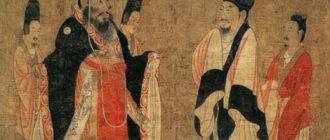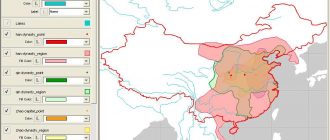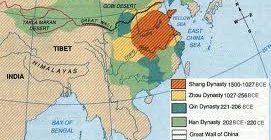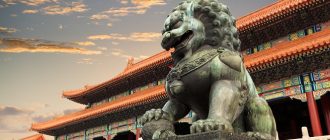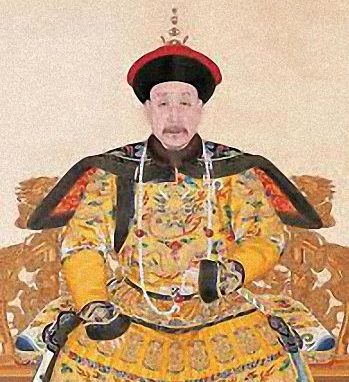
All throughout Ancient China to the end of Imperial China, Chinese civilisation lived under a social hierarchy – a ruling system where people are ranked according to status or occupation.
There are many roles within the Chinese hierarchy, some more respected than others.
In ancient Chinese society, the Fengjian social structure of circa 1046-256 BCE gave rise to Confucian or Legalist scholars’ classification of the Chinese people into four broad categories.
These roles are often distributed since birth according to their parent’s position, and each person is compelled to perform their duty, occasionally moving up the hierarchy ladder to a higher and better position.
From highest to lowest social strata, the categories were:
- The Shi, or gentry scholars;
- The Nong, or peasant farmers;
- The Gong, artisans and craftsmen;
- And the Shang, merchants and traders.
Emperor
The emperor was an important role within the Ancient Chinese hierarchy: they were well venerated, dominating power over everyone in the kingdom, making the major decisions.
The emperors had considerable wealth and owned the most land, they would usually assign talented soldiers and nobles to help them make decisions and govern small areas of land, called counties. There would only be one emperor reigning at a time, when the emperor dies, the son would typically assume the throne.
Throughout Chinese History, there has been emperors that significantly contributed to the progression of civilisation, and emperors that were tyrants, impeding further progression.
Soldiers
The soldiers were also a respected class of the Ancient Chinese hierarchy, they were the defenders of the kingdom; protecting the country from raids and riots, keeping the people in control. Soldiers also had great wealth.
Shi Class – Gentry Scholars
Defining the shi as gentry scholars is not wholly accurate. The early shi came from the ancient warrior caste, but the make-up of the shi gradually evolved until it was mostly made of aristocratic scholars who studied in order to occupy positions of rank, and then further into a bureaucratic scholarly elite where noble lineage was de-emphasized.
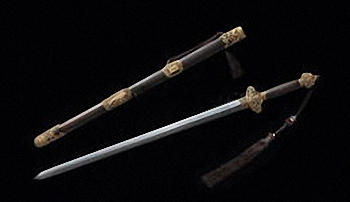
Nobles were well educated, gentry scholars of Imperial China especially prevalent in the Shang and Zhou Dynasty. These people were still relatively well respected in the Ancient Chinese society.
Scholars – even those who owned land – were never very rich, but they were respected because of their knowledge. Access to information was very limited in ancient times, and so scholarly pursuits were very challenging.
Nobles are low-level aristocrats, they were granted certain privileges and held limited power over people, conducting and commanding battles during wars. Nobles were also known for their warrior skills and double edged swords called Jian (剑).
Nong Class – Peasant Farmers
Peasant farmers were second only to gentry scholars in ancient China. Peasant farmers served an important purpose in the Chinese hierarchy. They had to sustain food for not only themselves, but the whole kingdom.
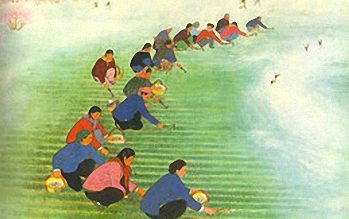
Farmers were landholders like gentry scholars, and agriculture long played a key role in the rise of Chinese civilization.
Not only did the farmers produce the food to sustain the society, they paid land tax, which was a source of state revenue for the ruling dynasties.
Farmers were therefore valuable members of society even though they weren’t shi. However, shi families were still landholders who also produced crops and food themselves.
Gong Class – Artisans and Craftsmen
The gong were those who had skills to make useful objects. This was the class identified by the Chinese character that stands for “labor.”
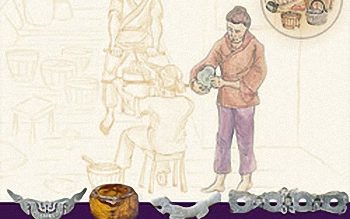
They were like farmers in that they produced essential objects, but most of them did not have land of their own and so did not generate the revenue.
However, they commanded more respect than merchants because the skills they had were handed down from father to son.
Artisans could be government employed or self employed, and those that were most successful could become wealthy enough to hire apprentices or laborers that they could manage. Besides creating their own enterprises, the artisans also formed their own guilds.
Shang Class – Merchants and Traders
The Shang Class consisted of merchants, traders, shopkeepers and bankers. There was not a lot of respect for merchants and traders in ancient Chinese society.
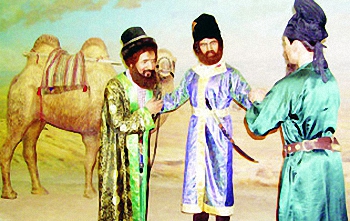
Though they could achieve significant wealth, they were held in low esteem because they did not produce anything, but rather transported and traded goods made by others.
Sometimes merchants bought land in order to be considered farmers and therefore command more respect in society.
However, some people of the Shang Class were able to make enough money to climb up the hierarchy ladder into better positions
Some would buy a good education for their descendants so that they could attain the status of scholars. Though traders, merchants, and peddlers were viewed as essential members of society, they were lowest on the four rungs of the ladder of ancient Chinese social hierarchy, due to popular perception of these people as greedy and immoral.
Slaves
The slaves were the lowest class of the Chinese social hierarchy, they lived a very sad, gruesome life.
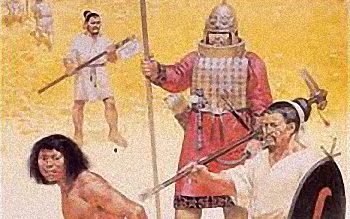
Like peasants, slaves often worked out on the fields, planting and harvesting crops.
However, the people of this class were owned by masters, so they had no rights and were severely underfed.
Slaves were often killed as sacrifice for ceremonies and funerals. These people almost never moved up the hierarchy pyramid, working to the end of their lives. The life expectancy rate of a slave is around 30-40 years.
The four basic classes of ancient Chinese society were broad categories that were more ideals than reality, particularly as China approached the era of the Song and Ming dynasties, and commercialization of society increased. By the time of the late Ming Dynasty, the class of wealthy merchants had merged with the landholding gentry.
Though the so-called “four occupations” did entail different levels of legal privilege in ancient Chinese society, they were more a rhetorical construct, and did not have much of an effect on government policy.

